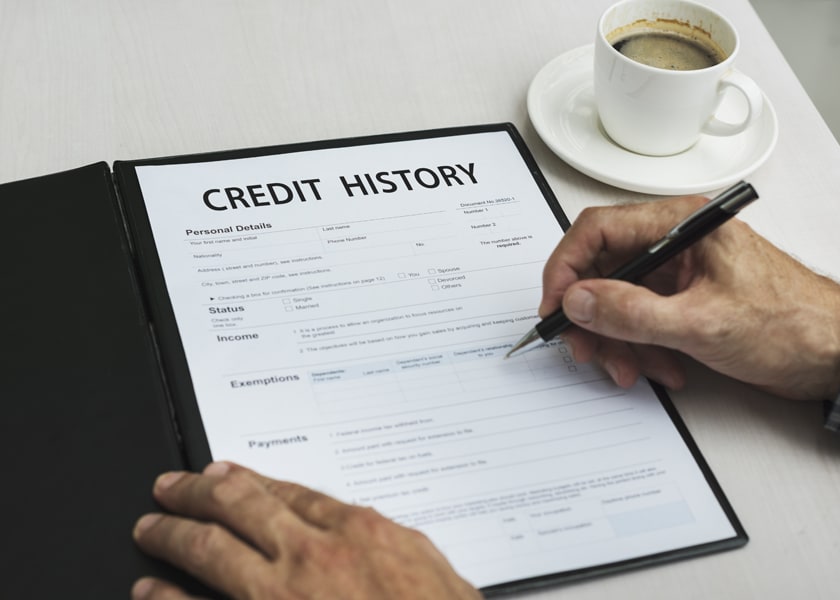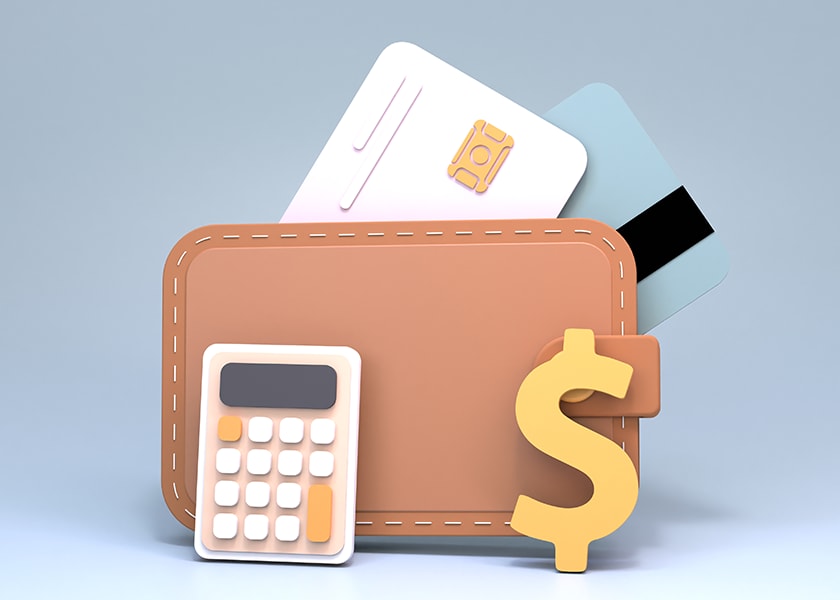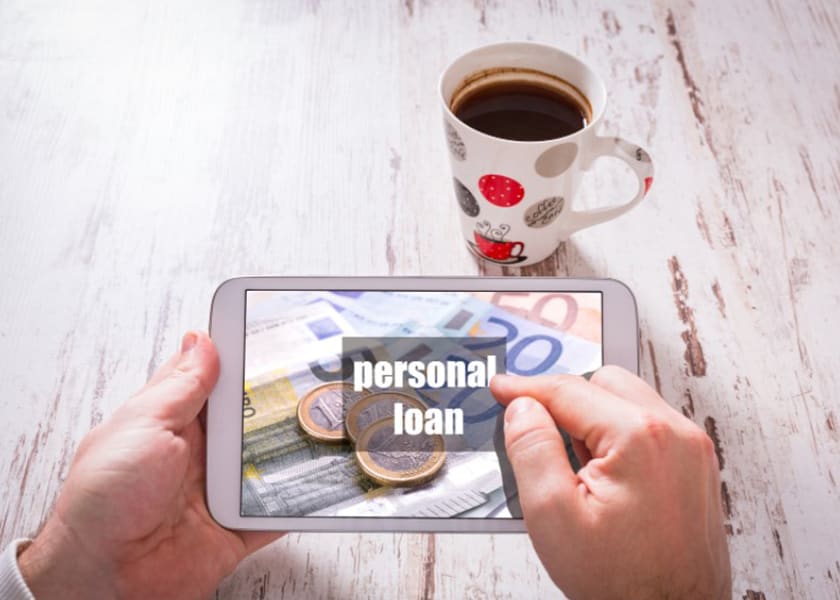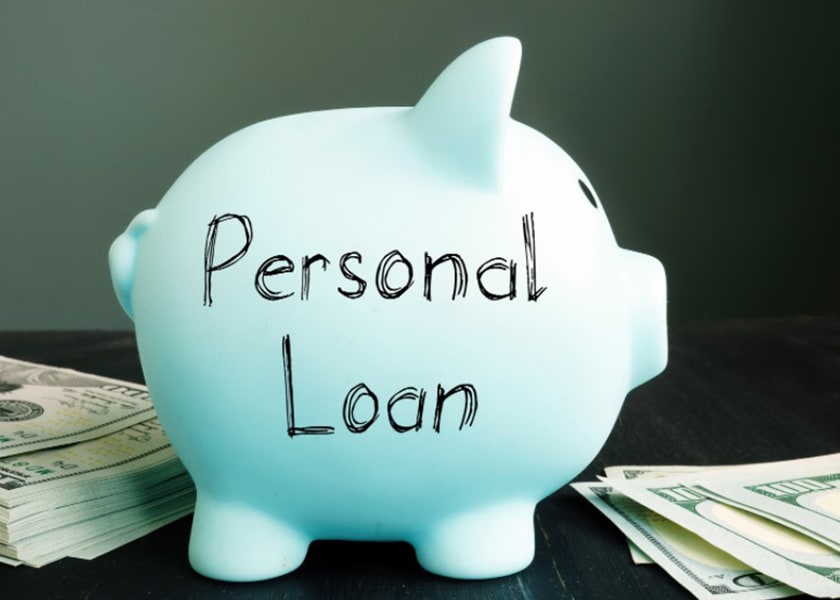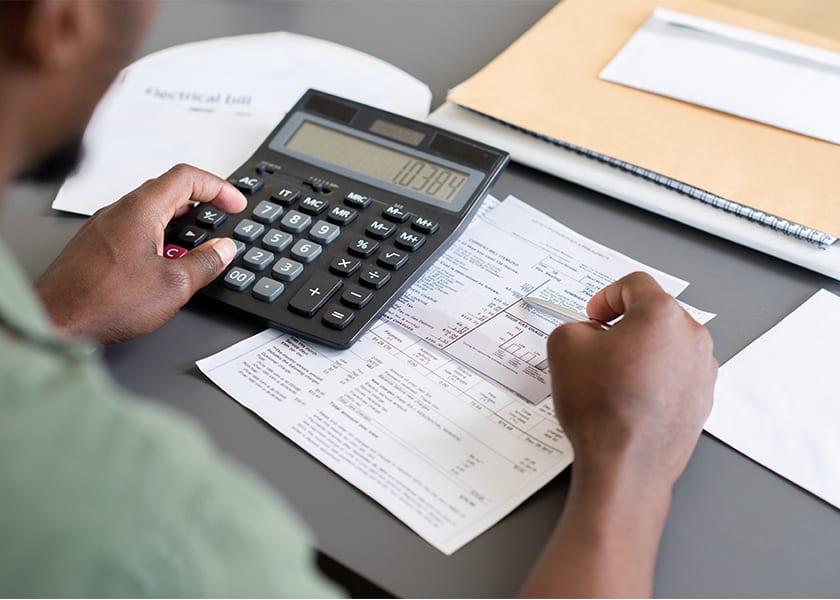Best Personal Loan Lenders
Credible 
Updated 2024
- APR: 6.4% - 35.99%
- Loan Terms: 1-10 Years
- Credit Score: Fair/Good/Excellent
- Amounts: $600-$200,000
Tips For Low Interest Personal Loans
1. Contact Your Bank First
Find out if your bank offers lower-interest personal loan options before considering other sources. Many banks offer unsecured personal loans because they're cheaper than other lending products, like HELOCs, and easier to offer.
In addition, when you're applying for a loan from your bank, they may be able to give you a favorable interest rate because of their relationship with you as a customer. Asking about this type of lending is also a good way to gauge whether the bank wants your business enough to provide lower rates on other types of loans.
2. Check Guidelines in Advance
Some lenders have strict requirements when it comes to personal loans. For example, some banks set a maximum loan amount or will lend only in certain parts of the country (or world). Make sure you know what restrictions apply before making an application. If there are no restrictions, try getting multiple quotes from different banks so that you can compare offers.
3. Seek out Third-Party Lenders
Certain types of loans are only available from private companies. For example, car loans are often offered exclusively through auto dealerships, because they want to make extra money off your loan after you buy a car. Other lenders that might offer personal loans include credit unions and peer-to-peer lending services. It's important to research these entities thoroughly before signing on the dotted line so that you know what rates and terms you can expect.
4. Check Your Credit Rating
A good place to start is with your current bank or lender if they provide this service free of charge. If not, consider contacting one of the leading consumer credit bureaus for an independent review at regular intervals. Paying for a thorough credit analysis can save you from headaches down the road.
5. Find out What Loan You Qualify For
There are different types of personal loans, depending on your needs and qualifications. For example, secured loans require a minimum down payment that's typically a percentage of the total loan amount. Unsecured loans don't require a down payment at all, but they offer no collateral in case you default on the loan. Loans backed by an asset may have lower interest rates because lenders assume that they'll be able to seize your property if you stop making payments on time.
6. Compare Rates Between Various Lending Sources
Once you've checked with your and identified other possible sources for a personal loan, find out which lenders offer the best rates and terms for your particular financial situation. As a rule of thumb, shopping around is a good way to improve your chances of getting a lower interest rate.
7. Figure Out How to Pay Back the Loan
Before you commit to any financing package, make sure you have an idea of how much money you'll be able to put towards repaying your debt every month. This makes it easier for lenders to figure out whether or not they're willing to offer you a personal loan in the first place. If possible, try negotiating with your lender so that you can come up with a repayment schedule that suits both parties.
8. Pay Off Loans Quickly When Possible
If you have the financial resources to do so, consider devoting extra money on a monthly basis. This will help you pay off your loan more quickly and save yourself money in the process. If this isn't possible, consider refinancing your debt with another lender that can offer you lower interest rates or more flexible repayment terms.
9. Find Out How to Get Credit After Bankruptcy
If you're facing bankruptcy, it can be difficult to obtain an unsecured personal loan of any kind. Before filing for bankruptcy protection, find out if there are lenders who are willing to work with people in your situation by checking state laws or consulting with legal professionals experienced in lending regulation. There are also peer-to-peer lending services designed specifically for people undergoing financial hardship. If you're in this situation, consider investigating these options before deciding to file for bankruptcy.
10 . Look Into Refinancing Existing Debt
If your financial situation has improved since you incurred your original debt, then it might be worthwhile to consider consolidating all of your loans with one new loan at a lower interest rate. Be warned that some lenders will charge significant fees for performing this service, but it's still better than paying the high-interest rates on multiple debts with balances that are difficult to pay off. Refinancing can also apply when you want to switch from an unsecured personal loan to a secured one (for example, if you want to consolidate car payments in order to get a mortgage).
11. Get Rid of Debt by Consolidating Debt
If you have high-interest accounts, consider finding a low-interest loan to consolidate all of your higher interest accounts into. If possible, try to get this type of consolidation loan at no or little cost; but if that's not possible then paying off the loans with the highest interest rates might be worth it. By doing this, you're cutting down on unnecessary fees and saving money in the long run.
12. Use Credit Cards Responsibly
If you've already taken out a personal loan, make sure to use your credit card wisely in order to avoid compounding debt. Whenever possible, limit yourself to one or two credit cards rather than applying for multiple cards under different names (in case something goes wrong). Make sure you never overspend and pay your entire credit card bill on time every month, since this is the easiest way to avoid accumulating debt.
13. Avoid Using Payday Loans or Other Short-term Financing
Short-term loans should be reserved for emergency situations that require large sums of money within a very short period of time. When considering these types of loans, make sure you understand all the associated fees (including interest rates) before signing any agreements; this will make it easier to repay the loan when the due date comes around. And if at all possible, try not to break your habit of taking out small unsecured personal loans for items like clothing or electronics unless absolutely necessary. This might seem like only a minor inconvenience, but it can be a slip-up that leads to a debt spiral if you aren't careful.
14. Use an Independent, Personal Loan Comparison Website
In order to find the best possible deal for your situation, consider looking at several different types of loans from different sources before choosing one to apply for. In particular, look into peer-to-peer loans and other similar financing options that don't require a credit check or other extensive requirements. The websites offer comparisons between lenders so you can choose the most suitable option.
15. Make Sure to Read All Required Documentation Carefully
In many cases, you will only receive the terms of your loan in writing after you've already applied and been approved (or even worse, there might not be any written information at all). Therefore it's essential that you pay attention when filling out forms and ask questions if you're unsure about anything. Before signing any agreements, make sure to consider how much money you'll need compared to the length of the repayment period so you can figure out what interest rates you'll be able to afford.
16. Watch Out for Predatory Lenders
If your credit score isn't sufficient enough to qualify for a regular loan, it's possible that some companies will try and trick you into taking out an expensive alternative financing option. They might even advertise their product as a "personal loan" when in reality the terms are extremely unfavorable (for example if they offer a very high-interest rate). In these cases, feel free to walk away from the deal if you're asked to sign an application before reading all of the fine print.
17. Think About Getting Professional Help
If all else fails, consider speaking with a credit counselor or debt settlement service if nothing seems to work for you. These companies normally charge a fee for their services, but this is sometimes more affordable than going through a lawsuit to have your debts discharged by a judge. Just remember that the best way to avoid falling into significant amounts of debt is keeping track of all outgoing expenses and never spend more than you earn.
18. Think About Using an Accredited Personal Loan Attorney
In some cases, it might be possible for creditors to validate debts without presenting documentation from the original contract (for example if they have an original copy of your signature on file). If this happens to you, make sure you bring up the issue with a credit counselor or other professional service as soon as possible since failure to do so could result in additional penalties being added to your existing balance.
Conclusion
No one ever intends to fall behind on their bills, but sometimes life happens and you find yourself in a difficult financial situation. If you're looking for a personal loan to help get your finances back on track, it's important to be aware of the various options available to you. In this article we've outlined 18 tips that will help make the process of finding and applying for a personal loan easier. We hope that by following these guidelines you'll be able to find an affordable loan with favorable terms.









